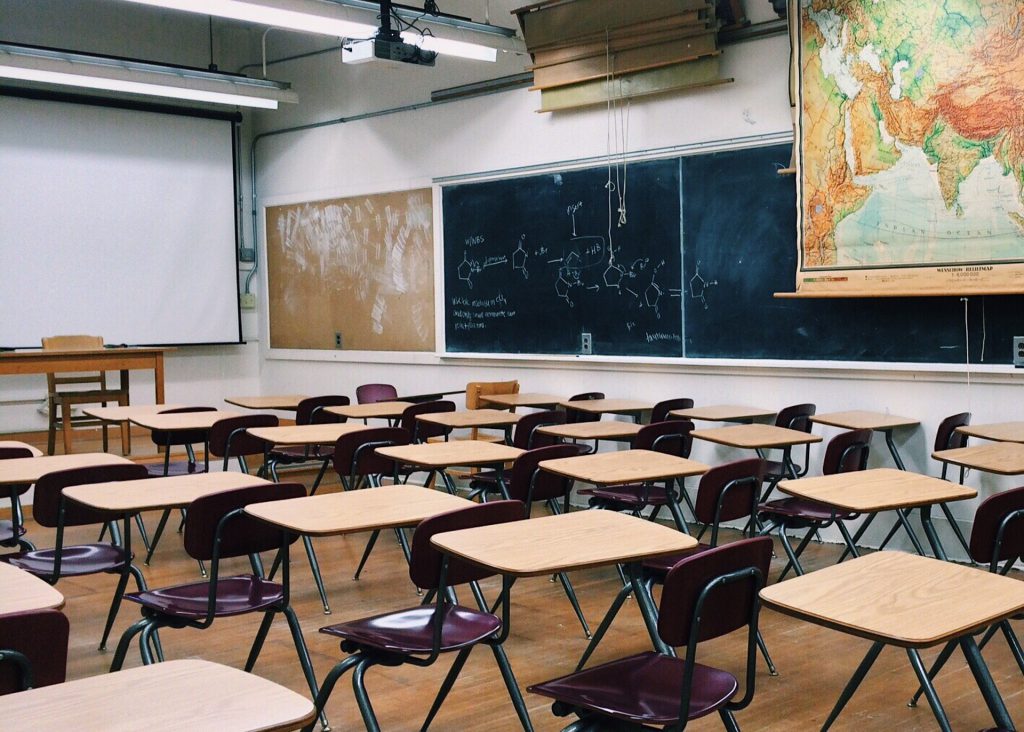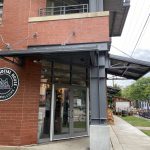Wisconsin School Boards Suspend Participation With National Association
State group joins mostly conservative states blasting NSBA for attacking “terrorism” against local boards.
On Tuesday, Nov. 9, the Wisconsin Association of School Boards (WASB) announced it was suspending participation with the National School Board Association (NSBA).
This could be the first step toward leaving the national organization.
A WASB memo to school board members around the state that the actions of NSBA “do not align with WASB policies and programs nor its mission to support, promote and advance public education.”
Wisconsin is not alone in considering leaving the national organization. An increasing number of state associations have already announced they are leaving NSBA.
Longstanding differences between state associations and NSBA came to a head on September 29, when NSBA sent a letter to President Joe Biden asking for federal assistance to combat “the growing number of threats of violence and acts of intimidation occurring across this nation.” The letter states that “these heinous actions could be the equivalent to a form of domestic terrorism and hate crimes.”
Reactions from state school boards across the nation were negative, forceful and swift.
The Idaho school boards called the letter a “mischaracterization of parents and patrons in our communities… We want parents and patrons engaged in our public schools – we have sought that for years.”
While Wisconsin did not openly attack the NSBA letter, WASB issued its own press release on Oct. 14 with the headline, “Citizen engagement is democracy’s bedrock.”
On Oct. 22, NSBA issued an apology saying there was “no justification” for using inflammatory language in the September letter. But that didn’t stop the exodus.
Within a week, Missouri, Ohio and Pennsylvania state school board organizations announced that they were pulling out of NSBA. That was followed by New Hampshire, Tennessee, South Carolina, Kentucky and Montana. Illinois had previously suspended dues payments to NSBA citing problems with the association’s “governance, transparency, and financial oversight,” but has not formally pulled out of the national organization. Other states are also reportedly considering withdrawing from the national association.
A single letter to the Biden administration, unartfully composed, normally would not trigger a series of suspensions and terminations. But as Illinois has suggested, a pattern of conflicts between state associations and the national group runs long and deep. The letter was the last straw for several state organizations. The problem was just not how NSBA operated, but whether its goals align with state groups.
The state associations pulling out of NSBA are mostly conservative and lean Republican. All states leaving so far voted for Donald Trump in 2016 (among those leaving so far, only Pennsylvania went for Biden in 2020).
In Idaho, South Carolina, Oklahoma and Minnesota, Republican state legislators called for their state organizations to pull out of NSBA. Their calls had an impact in South Carolina. Although its school board association said it was staying with NSBA last week, it pulled out of NSBA on Monday.
In contrast, the liberal Massachusetts state school board association sent an email to NSBA stating that it was “very happy” that the national board “reached out to the FBI.”
The current conflict may not just pull state and national school board associations apart. It raises the possibility of tearing state associations apart as well. Some locals may leave their state organizations if those states do not leave NSBA. Conversely, other locals might leave the state associations that leave NSBA in support of the national organization. One WASB official speculated that Wisconsin could wind up with competing state and national school board associations.
Different states have different school board association structures. In both Wisconsin and Illinois, that structure increases the power of smaller, rural districts — which helps explain why reliably Democratic Illinois continues to criticize the national school board group with such intensity.
In both Illinois and Wisconsin, state school board association representation is not based upon population but on school districts. In both states, every district gets one vote. In its delegate assembly, Chicago gets one vote in Illinois; Milwaukee gets one vote in Wisconsin. When it comes to the Wisconsin board of directors, aside from Milwaukee, no other Wisconsin urban district has a seat on WASB’s board of directors — not Madison, Racine or Kenosha. The next largest district on the board is Oshkosh. Green Bay had a vote in the past, but currently is not represented. In both states, rural and small-town districts control state organizations. This is a common structure for state school board organizations across the nation.
Embedded in protests of the NSBA’s letter were several other issues shared by many state school board organizations.
State boards complained that the NSBA sent its letter to Biden without consulting of their organizations. The heavy hand of the national association has been a continual flashpoint for more than a decade. In particular, Republican leaning state school boards resist involvement of a Democratic federal administration in what they consider state issues.
Only a few months ago, mandates related to COVID-19 dominated school board conflicts. Recently, curriculum that deals with the issue of racism has moved to the forefront.
The original NSBA letter stated that school officials were “facing physical threats because of propaganda purporting the false inclusion of critical race theory within classroom instruction and curriculum. This propaganda continues despite the fact that critical race theory is not taught in public schools…”
Parents Defending Education (PDE) calls itself “a national grassroots organization working to reclaim our schools from activists imposing harmful agendas.” It states “Couched in vague slogans such as ‘social justice,’ the new curriculum divides our children into ‘oppressor’ and ‘oppressed’ groups. To one, it teaches guilt and shame. To the other, grievance and anger… Schools are adopting this illiberal mission at the behest of a narrow group of activists — without the consent of the students, parents, and communities. … This must stop.”
Public education activist, scholar and popular blogger Diane Ravitch quotes Maurice Cunningham from the University of Massachusetts who says of PDE, “It combines white supremacy with a vicious plan to launch personal attacks on elected officials, administrators, and teachers.”
PDE emailed 47 state school board associations that are members of NSBA asking them to comment on the NSBA letter; 24 state associations thought highly enough of PDE to respond to its requests. Five states that voted for Biden in the last presidential election responded: Delaware, Georgia, Illinois, Pennsylvania and Virginia. Only Delaware and Illinois did not go for Trump in 2016. Wisconsin did not respond to the PDE email request.
Virtually all the state boards that responded repeated their previous statements that NSBA had not consulted with their state organization before sending the letter to the president. The injustice of equating parents with terrorists and the intrusion of the federal government in state issues were common themes. No state addressed the culture wars or Critical Race Theory (CRT) in their response to PDE. But these issues are front and center in PDE’s agenda.
No local school board in Wisconsin has publicly demanded that WASB withdraw from NSBA.
For many years in Wisconsin urban and rural school districts have forged a coalition over poverty and economic equality. Urban districts have supported rural districts in asking the state to give additional funding for rural areas with sparse populations. Rural districts supported Milwaukee in its fight to maintain an independently elected school board. Both fought against voucher programs and charter schools that are independent from local control.
Kim Kaukl, Executive Director of the Wisconsin Rural Schools Alliance (WiRSA), states that his organization has been able to work particularly with Milwaukee Public Schools in a number of areas. WiRSA is very supportive of WASB and opposed Republican bills that outlaw the teaching CRT and other related topics, principally because of fines and penalties to school districts if strict requirements are not met.
But WASB has also tiptoed around race, bilingualism and cultural identity, and lacks resolutions that comprehensively address these issues. Only in January 2021 did it pass a resolution on Native American school mascots and symbols, and that was a year after a more robust resolution failed.
Privately, some WASB officials hope to stay clear of such issues for fear that they could tear the state organization apart. Gone would be an effective voice for more school funding, keeping schools in the hands of elected school boards and standards that keep public education thriving in Wisconsin.
It is not yet clear whether a resolution will be advanced at the WASB delegate assembly in January to allow WASB to leave NSBA is unknown, or what actions NSBA will take to keep other states from leaving.
While in 2001 Republican President George W. Bush and Democratic Senator Ted Kennedy forged a bipartisan agreement to pass the No Child Left Behind Act, today Republicans are pushing to get the federal government out of public education altogether.
On January 23-25, NSBA holds its Advocacy Institute in Washington, DC, bringing together state school board delegations for a series of meetings and presentations to highlight the legislative agenda for public education. After the presentations are held, individual state delegations are expected to visit their members of Congress to drive home a uniform message. This year, it’s not clear what that uniform message will be, and whether many states, including Wisconsin, will be there.
Wisconsin school boards suspend participation with national association was originally published by the Wisconsin Examiner.




















School board members being harassed and threatened in Wisconsin and the United States is becoming quite common with encouragement and support from conservative politicians and foundations. In some instances, school board meeting are intentionally disrupted. There needs to be laws that protect elected officials from harassment and threats and guarantee that school boards can meet and conduct their business in an orderly manner. There is a trend by the media and some elected officials that these disrupters have a right under the Second Amendment to threaten elected officials and create chaos at school board meetings. This tolerance is dangerous.